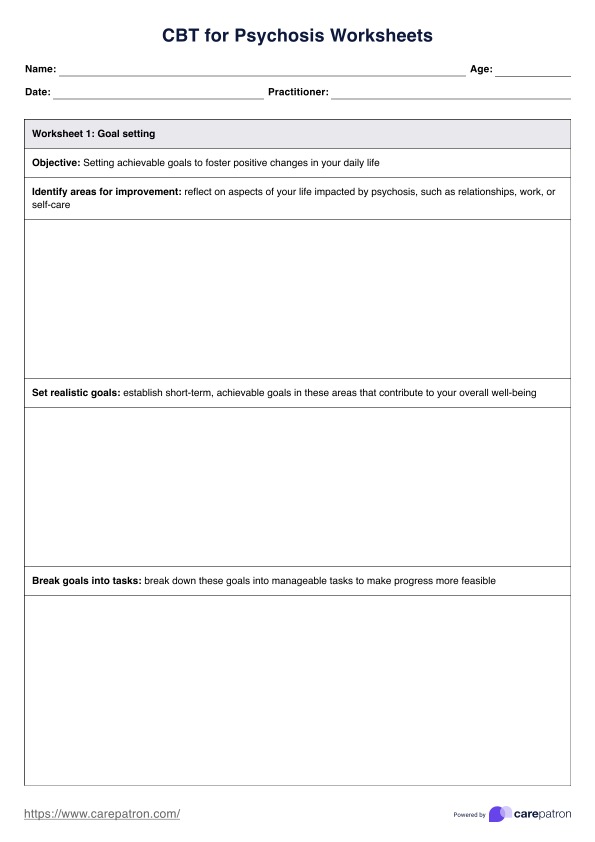CBT for Psychosis Worksheets are practical tools that support Cognitive-Behavioral Therapy by guiding individuals through exercises to identify and address cognitive distortions, delusions, and hallucinations. This worksheet also supports relapse prevention planning.

CBT for Psychosis Worksheets
Elevate your psychosis treatment with our CBT worksheets, designed to tackle cognitive distortions and foster effective coping strategies.
CBT for Psychosis Worksheets Template
Commonly asked questions
CBT worksheets enhance the effectiveness of psychosis treatment by providing a structured approach for the individual and mental health professional to actively engage in challenging irrational beliefs, gaining insight, and developing coping skills.
Exercises such as thought records, cognitive restructuring, behavioral experiments, and mindfulness techniques are included, aiming to address specific cognitive and emotional aspects, improve coping skills, and enhance self-awareness in individuals with psychosis.
EHR and practice management software
Get started for free
*No credit card required
Free
$0/usd
Unlimited clients
Telehealth
1GB of storage
Client portal text
Automated billing and online payments











